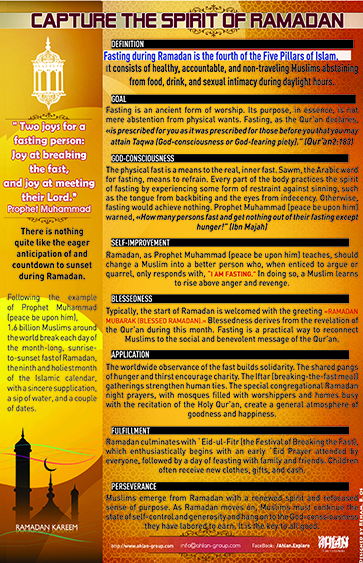Are you wondering why men and women pray separately in Islam? As a Muslim lady, I can tell you that this separation aligns with our natural disposition as women and is welcomed by Muslim women in our societies, as it feels more respectful and helpful in achieving the spiritual connection needed for prayers.
Even more, one of Islam’s merits is allowing us to pray anywhere, and since Islam makes it more rewarding for women to pray at home, I often feel more spiritual praying alone in my room—away from both men and women—directly confessing my feelings and complaints to my Creator in this spiritual journey of prayer. The Islamic legislation in this context aligns perfectly with reason, common sense, and our needs. Let’s explore how separation in prayers is one of Islam’s strong points!
Can Men And Women Pray Together In Islam?
The recommended arrangement in Islam is for men to pray in front of women during congregational prayers maintaining a proper distance or separation, such as a cloth divider or wall. However, in cases of necessity, such as extreme crowdedness in places like the Sacred Masjid in Mecca where organizing all areas becomes unmanageable, men and women praying together is valid. While this is not the ideal standard, the prayer remains correct for both.
The governing rule for separation between men and women in prayer is taken from the Prophetic instruction:
“The best of the men’s rows is the first, and the worst is the last, and the best of the women’s rows is the last, and the worst is the first.”
[Sahih Muslim – 440]
Thus, separation results in more concealing for women and farther from mixing with men, seeing them, and being tempted by them. An-Nawawi said, As for the rows of men, they are generally subject to this rule: the best of them is always the first, and the worst of them is always the last. As for the rows of women, what is meant by the Hadīth are the rows of women who pray along with men. However, if they pray separately and not with men, then they are like men: the best of their rows is the first and the worst of them is the last.
Read more: The Role of Mosques in Islam
Why Do Men And Women Pray Separately In Islam?
Islam sets boundaries between men and women in daily interactions to achieve higher objectives, such as modesty and societal protection. Among these guidelines is the Islamic ruling of separating men and women in prayer when possible. The reasons for this practice are rooted in Islamic objectives and authentic traditions:
1. Modesty as a High Objective in Islamic Legislation
Modesty is a cornerstone of Islamic teachings, aimed at maintaining a virtuous society. Islamic rulings that promote modesty include prohibitions against adultery and steps leading to it, such as regulating interactions between men and women. Separation in prayers reflects this principle, contributing to a low percentage of harassment and illegitimate children in Muslim societies compared to others.
Read also:
- Quran Verses About Love And Marriage in Islam
- Is There A Reward For Muslim Fathers For Raising Daughters?
- Women’s Shares of Inheritance in Islam
- Marriage in Islam
2. Separation Supports Prayer Objectives
Prayer (Salah), the second pillar of Islam, connects the soul to the Creator. Its significance necessitates a clear and focused heart. To help maintain this focus, precautions such as separating men and women during prayers are taken. The Prophet Muhammad (peace be upon him) emphasized minimizing distractions in prayer, stating:
“If there is not before him (an object) like the back of a saddle, a Muslim’s prayer would be cut off by the passing of a woman…” [Sahih Muslim].
Read also:
3. Prayer Actions Necessitate Separation
Prayer involves physical movements such as bowing and prostration, which can be uncomfortable for women if performed in the presence of men. Separation ensures that women are protected from being in positions where their bodies might be viewed in a way that contradicts Islamic principles of modesty and respect.
4. Islam Honors Women by Protecting Their Dignity
Islam upholds women’s dignity by creating boundaries that make them difficult to exploit or blackmail. Examples include:
- Hijab: Women are instructed to cover their bodies to protect them from unwanted attention.
- Lowering the Gaze: Both men and women are commanded to lower their gaze from non-related members of the opposite sex.
- Order of Isolation: Islam forbids unrelated men and women from being alone together, as the Prophet Muhammad (peace be upon him) warned:
“Whenever a man is alone with a woman, the devil makes a third.” [Sahih Sunan Ibn Majah] - Limiting Interaction to Necessity: Social friendships between unrelated men and women are discouraged. Interaction is permitted only when necessary and must remain serious and respectful.
Read also:
- 8 Reasons Why You Should Be a Muslim?
- Mother’s Rights in Islam: The Door Way to Heaven!
- Are Muslims Allowed To Date?
- A Widow’s Rights & Status In Islam
5. Prophet Muhammad’s Guidance on Separation in Mosques
While the Prophet (peace be upon him) encouraged women to pray at home for greater rewards, he did not prohibit them from attending mosques. However, he emphasized the importance of separation. For example, he suggested reserving a separate door for women, saying:
“If we reserve this door for women, it would be better.”
Read also: Prophet Muhammad As A Husband
Conclusion
To conclude, the separation of men and women in prayer reflects Islam’s broader principles of modesty, protection, and maintaining focus in worship. By regulating interactions, Islam safeguards women’s dignity, preserves societal morality, and ensures the sanctity of acts of worship in a way that aligns with human needs and reason.
Do you know that Islam is the fastest-growing religion and that most of the US converts are women?!
Start a conversation with our team now for more about Islam and the status of women in this religion!













